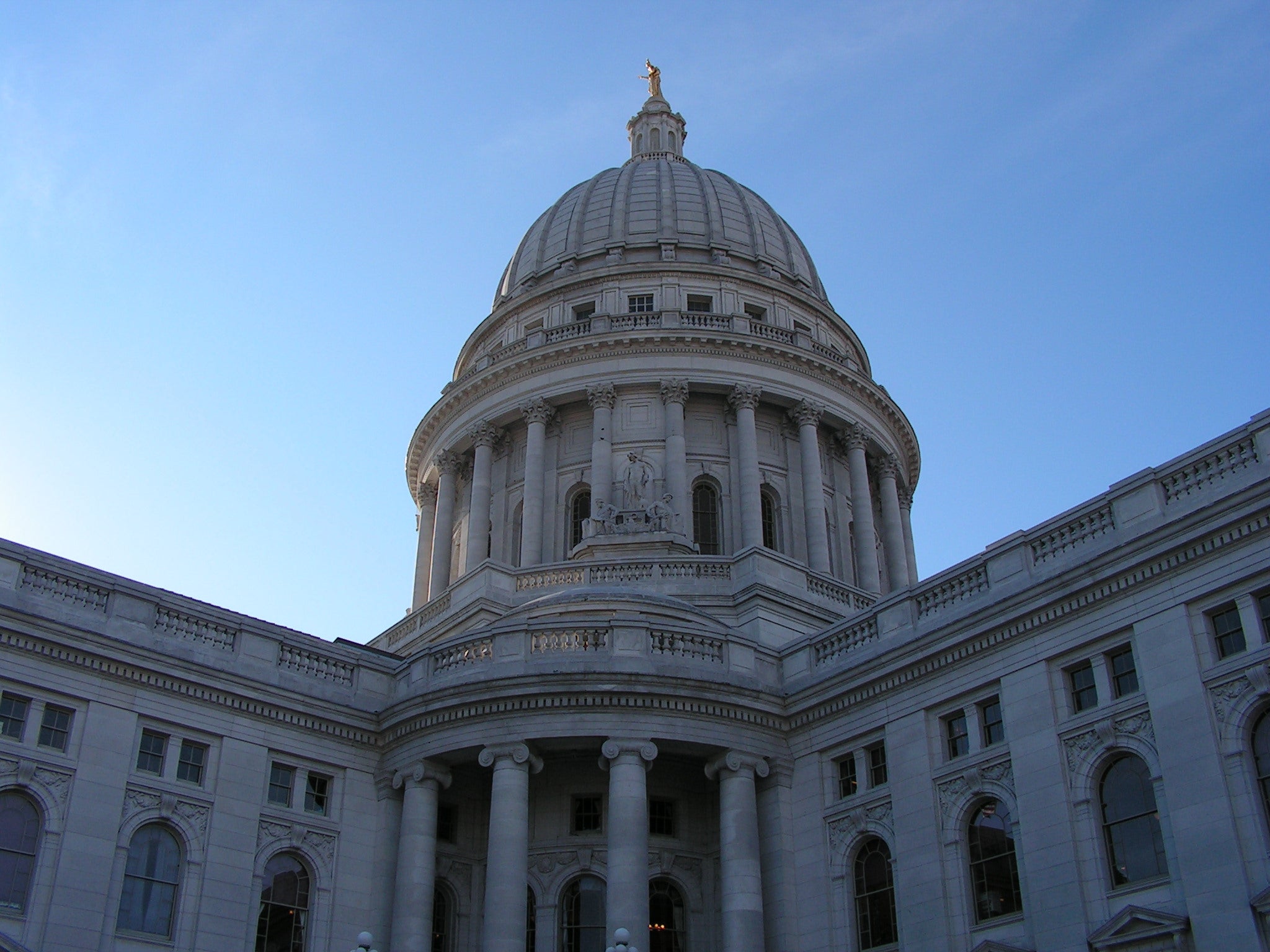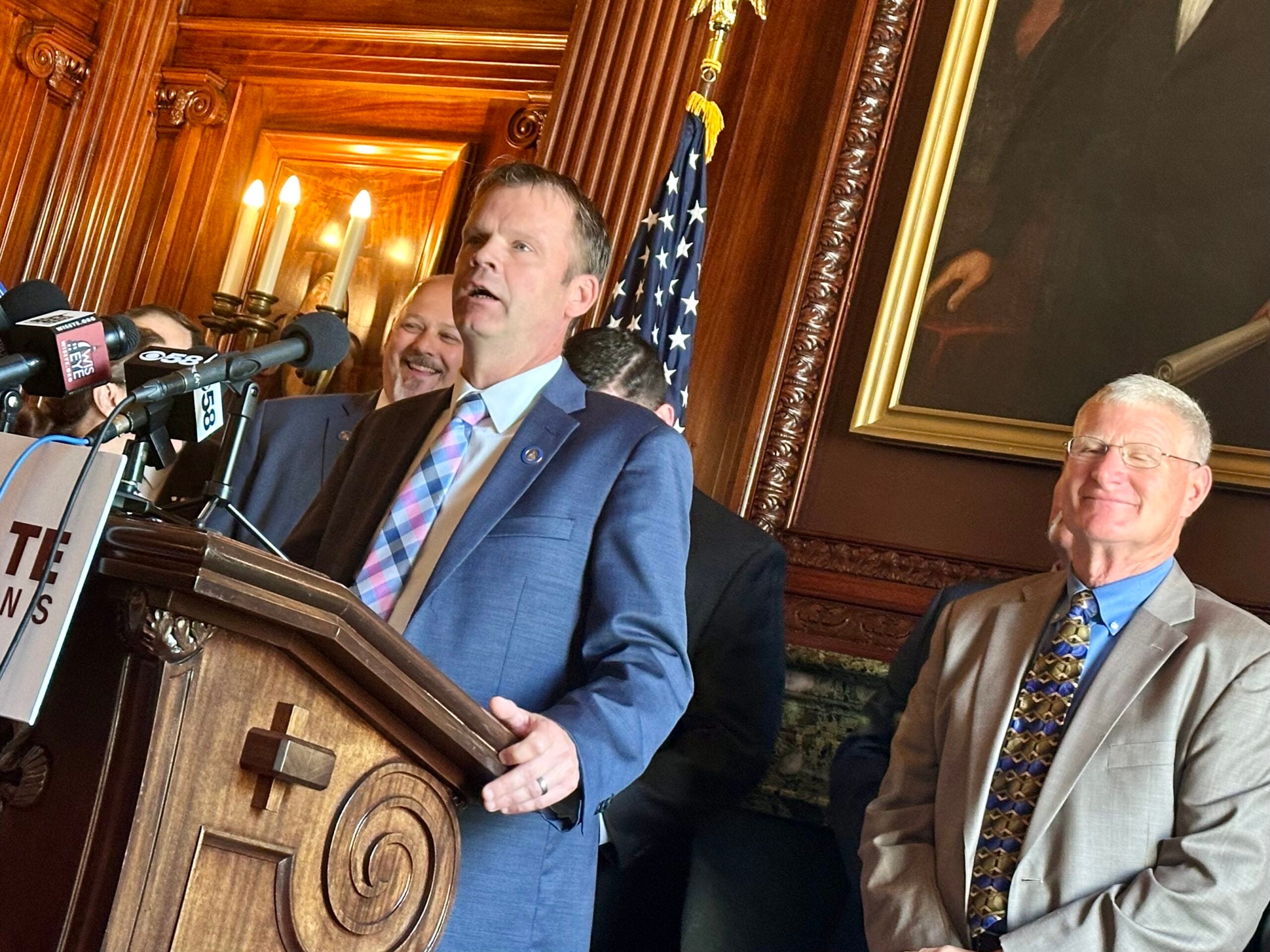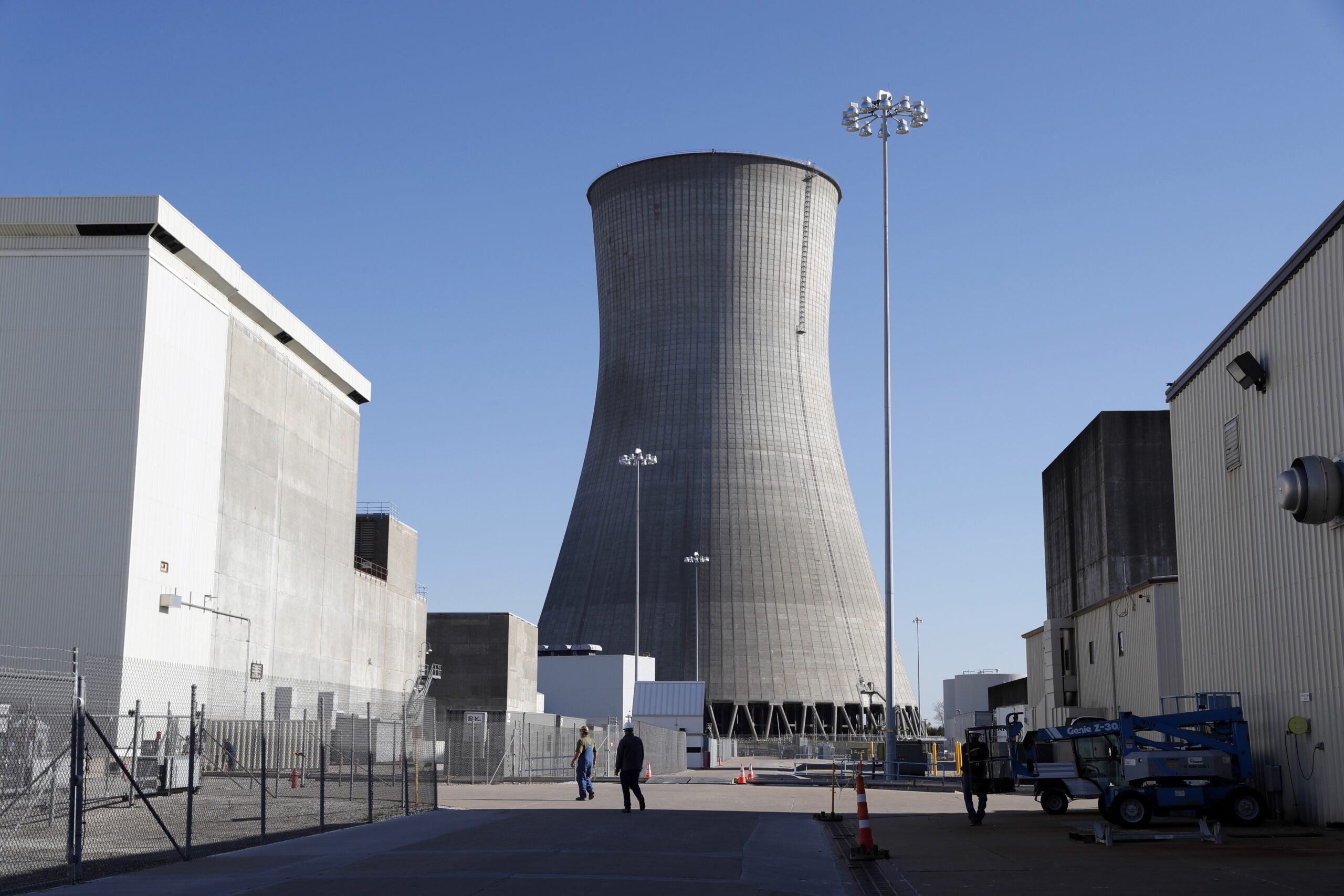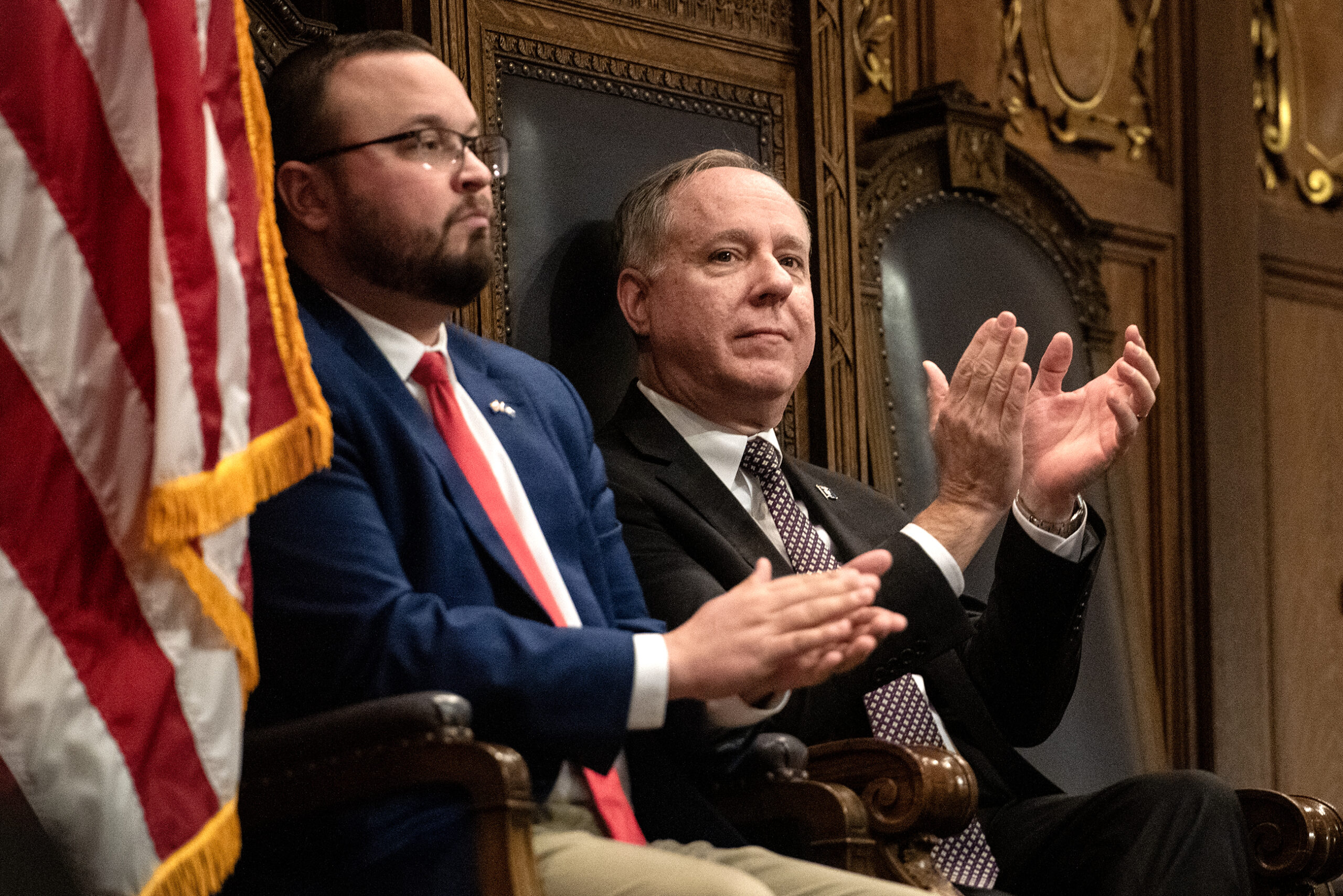A western Wisconsin state Senate race is attracting national attention and major donors in hopes of keeping the district and the state Senate under Republican control.
Republican Terry Moulton of Chippewa Falls has easily won re-election to the 23rd Senate District since 2010. But after Moulton announced his retirement from state politics in March, the future control of the state Senate came into question.
Almost immediately after Moulton’s announcement state Rep. Kathy Bernier, R-Lake Hallie, said she would campaign to represent the 23rd District. The next month, emergency room physician Chris Kapsner announced he too would run for Moulton’s seat, setting up a showdown in a political climate that has favored Democrats in a series of recent special elections.
News with a little more humanity
WPR’s “Wisconsin Today” newsletter keeps you connected to the state you love without feeling overwhelmed. No paywall. No agenda. No corporate filter.
The race has attracted national attention and spending from outside groups. One example is an announcement by the Wisconsin chapter of the Koch Brothers-funded group, Americans For Prosperity, that it was spending six figures on mail, digital and radio advertisements for Republicans running for key Senate seats including the 23rd.
Americans for Prosperity Wisconsin state director Eric Bott said in an Oct. 9 press release that Republican lawmakers, like Bernier, were vital to keeping the state’s economy moving in the right direction.
“Wisconsin needs leaders who will reject special interests and double down on the pro-growth reforms that got us here in the first place and we enthusiastically encourage Wisconsinites to vote for Rep. Kathy Bernier,” said Bott.
According to their last campaign finance reports Bernier has the upper hand with $134,938, while Kapsner has $44,035.
During a Monday debate on Wisconsin Public Radio Bernier and Kapsner clashed on issues including transportation funding and the roughly $4.5 billion state and local economic incentive package offered to Taiwanese electronics manufacturer Foxconn.
Kapsner accused Bernier and her Republican legislative colleagues of funneling money to highway megaprojects in southeastern Wisconsin including upgrades to Interstate-94 in preparation for the Foxconn manufacturing plant. Kapsner said lawmakers have borrowed too much to maintain the state’s transportation system in order to avoid unpopular votes to raise revenues.
“I think the simplest solution is a small gas tax. If we added one penny to the gas tax, you’re raising approximately $26 million,” said Kapsner. “However, my bottom line is simply I will keep an open mind and I will ask for evidence and best practices.”
Bernier, on the other hand, said that overall tax revenues are up, which means more money for roads. She also pointed to potential savings in the state’s Department of Transportation. She said that the agency’s new Secretary Dave Ross has been finding ways to spend less by instituting a design-build policy for renovations and diverting money away from non-essential projects
“There are a lot of expenditures in the Department of Transportation that has nothing to do with actual roads,” said Bernier. “It’s bike trails, rails to trails and whatever. All of that is being looked at as to how we can spend money more efficiently for direct infrastructure.”
As for the money being diverted to southeastern Wisconsin instead of the 23rd Senate District, Bernier said she expected that to shift in time.
“Once those megaprojects are done in the southern part of the state, where truly most of the transportation and driving goes on, that money can then be used up toward our area of the state as well,” said Bernier.
A major point of contention in the 23rd Senate race, and others across the state, is the $4.5 billion incentives package for Foxconn approved, in part, by lawmakers in 2017. Bernier voted in favor of the package and said she’s been pleased with projects around recently announced by the company.
“They have invested millions of dollars in Green Bay,” said Bernier. “They have invested millions of dollars in Milwaukee. They are investing in Eau Claire, Wisconsin. They put $100 million into the engineering program at (the University of Wisconsin-Madison). That is over and above any sort of agreement that we had with Foxconn and I think that’s good for the state of Wisconsin.”
In contrast, Kapsner called the Foxconn incentive package a boondoggle, saying lawmakers would have been better off using the billions in promised taxpayer funds on infrastructure, schools and supporting local governments.
“Foxconn is a great example of what government shouldn’t be doing,” said Kapsner. “So, we have government picking winners and losers and we could have used this money so much better by investing in our counties and communities.”
While Bernier supports Foxconn, the two seem to share some concern on the use of taxpayer dollars to attract or keep businesses to Wisconsin. Bernier said using incentives to lure businesses is the name of the game, though she wishes it wasn’t. A case in point, said Bernier, is the comparison of the Foxconn incentives and the potential $100 million incentives package aimed at keeping consumer products company Kimberly Clark Corp. from moving operations out of Wisconsin. Bernier said Foxconn is the better of the two deals.
“So, it’s an overall benefit versus one that their business is dying out and it’s not creating new technologies or new ways of doing things rather than just holding them up until at some point they’re going to go under anyway,” said Bernier.
State Senate Majority Leader Scott Fitzgerald has been open to calling a session to pass the Kimberly Clark incentives. The state Assembly approved a package in February with Bernier voting in favor.
Wisconsin Public Radio, © Copyright 2025, Board of Regents of the University of Wisconsin System and Wisconsin Educational Communications Board.







